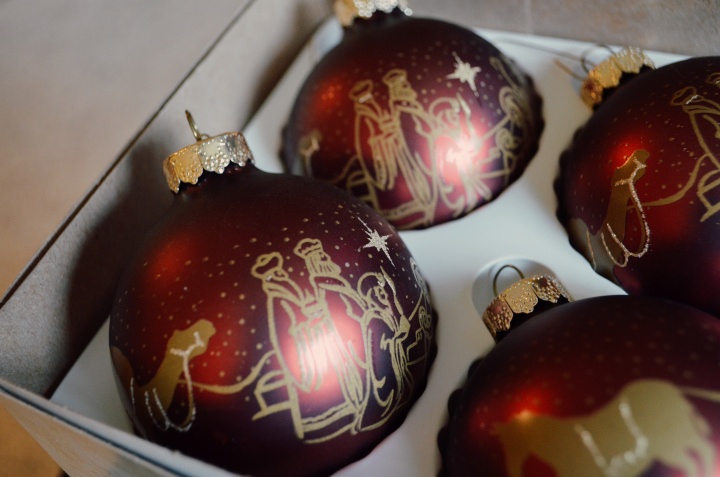Why Do You Celebrate Christmas?

At 12 years of age, I wondered what Christmas was all about. Where did it come from? Was Jesus really born on Dec. 25? Why were there so many blinking lights and brightly decorated trees if Christmas was all about a humble little baby in a manger? And why would everyone exchange gifts between themselves when wise men brought gifts for Jesus?
I anticipated Christmas because it meant a gift for me, no matter how small it was. My parents didn't have a lot of money in those days, so we would draw names out of a hat and buy a gift for one of our parents or siblings. I would have to ask for the money from Dad and then buy a tie or a pair of socks or something practical. Every dime counted. I marveled at my friends' Christmas trees, 6 feet tall and trimmed with lights, silver streamers and a star on top. Our Christmas tree was very small, placed on a lamp table, and adorned with a few streamers and perhaps topped with a small star.
Mom pointed out that Christmas was more about Jesus Christ, and Dad always took us to Christmas Eve church services. Christmas then wasn't like our modern commercialized Christmas. Still, I wondered, why did we celebrate Christmas?
Christmas and commercialism
In early America, the city of Boston outlawed the celebration of Christmas (1659-81). "Anyone exhibiting the Christmas spirit was fined five shillings". Washington Irving's writings (1819) about a peaceful, warm-hearted Christmas holiday became life imitating art. He reinvented Christmas in America. Finally, Christmas was declared a federal holiday in 1870. In the mid-20th century, commercialism began to dominate the Christmas season and businesses began advertising it in early December.
Recognizing that early advertising worked well, U.S. retailers began to promote Christmas right after Thanksgiving. Today, businesses start advertising for Christmas in early to mid-November. Many complain that Christmas has become too commercialized and that Christ has been crowded out.
But since Christmas celebrations are not mentioned in the Bible, and it was not observed by the early New Testament Church, can we really say Christ was ever in Christmas?
Christ was never in Christmas
As I studied the history of Christmas, I found that Christmas preceded Christ and Christianity by 2,000 years. I found this pre-Christian holiday actually represents a counterfeit mother-and-child concept that comes from the ancient world (Alexander Hislop, The Two Babylons, 1959, pp. 97-98).
Jesus would not have celebrated Christmas because it can be traced back to an ancient heathen practice, not to His birth.
He taught His disciples to follow God's commandments, not man-made customs: "These people draw near to Me with their mouth, and honor Me with their lips, but their heart is far from Me. And in vain they worship Me, teaching as doctrines the commandments of men" (Matthew 15:8-9).
It's commendable that some want to put Christ back in Christmas—commendable but not scriptural. The fact is, Christ can't be put back in Christmas because He was never in Christmas in the first place.
The Christmas question
Christmas comes from Cristes maesse, a phrase that means the mass of Christ. But in my study of the Bible I found that Christ didn't tell us to commemorate His death (as the bread and wine of the mass are intended to) in winter, but at Passover in the spring (Luke 22:15-20; 1 Corinthians 5:7; 11:23-26). And He didn't tell us to celebrate His birth at all.
Most people blindly follow human customs and traditions, saying in effect, "Don't bother me with the facts; my mind's made up." Let's face it. Most people don't really care whether Christmas is Christian or pre-Christian by a thousand or even a million years. They simply look on Christmas as a time to have fun, enjoy family togetherness (a good thing), have a few drinks, enjoy a good meal, pass out a few presents and then nervously wait for the bills to pile up in January. (When that happens, it makes you wonder—what's so happy about the New Year?)
But I found I could not ignore these facts: Christ never instituted Christmas, never celebrated it and never taught it.
So, why was I doing it? What about you? Why do you celebrate Christmas?
For more about the origins of Christmas and what the Bible says about it, see Christmas: The Untold Story from our booklet Holidays or Holy Days: Does It Matter Which Days We Observe?
